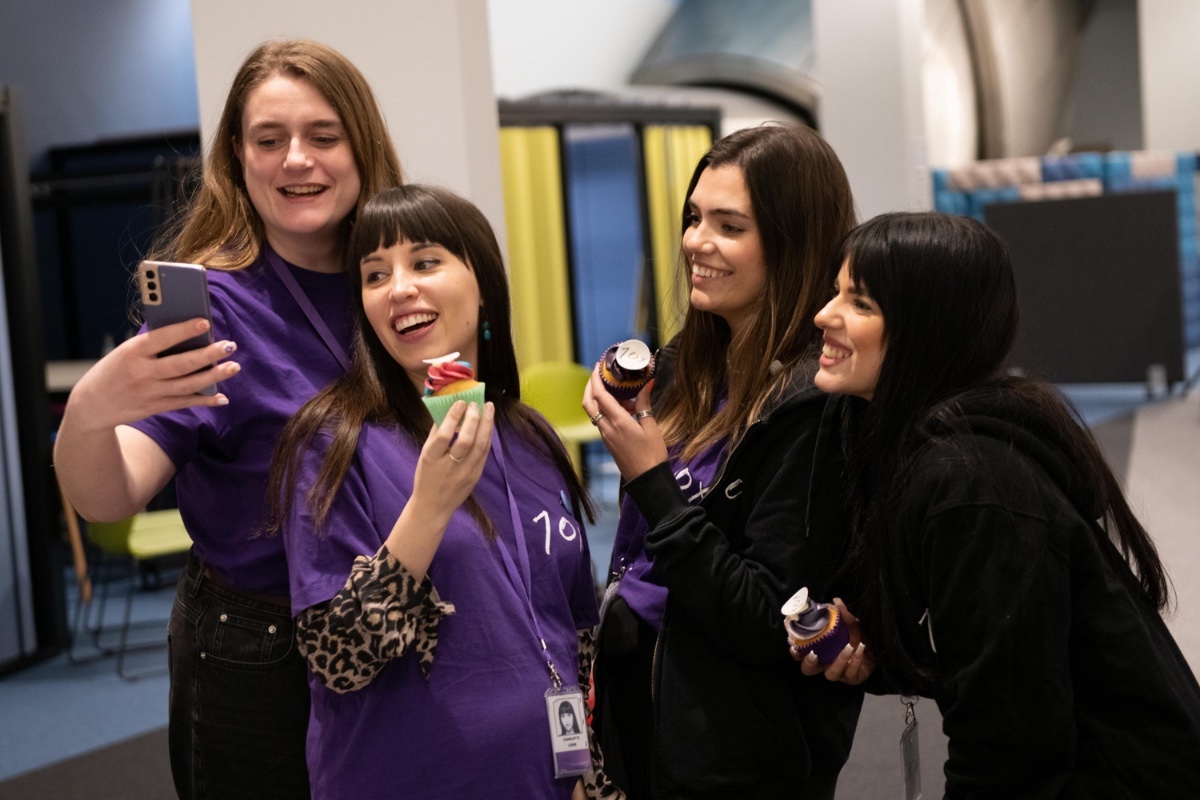Wellbeing has been a much-used word in business during the last two years. Looking after employees can of course help boost productivity, aid retention, and attract new employees - but there’s more to it than that. Coming out of the pandemic and the immediate focus on this subject - is it worth keeping that sharp focus on wellbeing - or should we just allow this subject to become one task among many others?
That’s the question I asked myself. We have learned an awful lot collectively on this subject in the last couple of years. Consequently, 10x recently reworked its wellbeing offering alongside some other policies, introducing some new initiatives to 10x colleagues. Here are my reflections on why creating a great wellbeing offering is just the right thing to do.
Why do something now?
You’ve only got to look at the data. It’s no surprise when you read Westfield Health’s Coping after Covid report which suggests over 40% of Technology sector professionals had their mental health affected since the start of the pandemic. Industry figures suggest that where wellbeing is maximised £61bn could be added to the UK economy. But it goes deeper for me. I would just rather try to avoid seeing 10x colleagues stressed or tackling burnout. I don’t want to be one of the people responsible for that.
Data tells the story for any business
Evolving a balanced wellbeing portfolio is always challenging, but I’m a firm believer in open, two-way conversations. At 10x we encourage continual feedback from colleagues. In a recent employee survey, specifically on which parts of our benefits offering were actually valued, and what we could do more on - it became overwhelmingly clear that my colleagues regarded wellbeing as one of the most important areas we needed to prioritize.
How did it come together?
I wanted to work quickly to bring about change post survey. I used the survey results to bring together a diverse group of people from all parts of the business. Together, we reviewed our existing benefits portfolio (i.e., was it fit for purpose?) and looked at what else could be done (i.e., is there something we are missing?). From that, we put together an action plan. The key was to act quickly. A lot of surveys irritate people, as there is a disconnect between a survey being completed and the time taken to create and communicate change. We’d asked colleagues for help, and now we needed to deliver on our end.
I’m lucky to work in a business where the founders are genuinely committed to doing the right thing by their people. The process of sign off, once we had landed on the right revised offering, was surprisingly simple and without challenge.
Do we need a progressive wellbeing offering to attract new people?
Of course, that thought crossed my mind. It’s important to have a good benefits package/wellbeing offering in a tight talent market. It helps attract great people. But first and foremost, you’ve got to look after the people you have. The company has already invested in bringing them onboard and committed to them as individuals. To lose them when you can genuinely support them always seems counter intuitive.
Five key changes to our wellbeing offering at 10x Banking
On top of existing benefits, we have now added these changes aimed at improving our colleagues wellbeing to the 10x offering:
- Every employee now receives 4 additional days off work (wellbeing days) each year. A day every quarter away from a screen to recharge and relax in any way that works for them.
- Every employee can now purchase up to 5 additional annual leave days per year.
- Employees who reach 2 years continual service and 4 years continual service now become eligible for a 2-week and paid 4-week sabbatical, respectively.
- 10 days of paid leave for pregnancy loss (before 24 weeks) for both carrier and partner have been introduced
- 10 days of paid fertility treatment leave per annum for both treatment receiver and partner have been introduced.
It’s not just about the policies. It’s about conversations.
It’s interesting to see how communication opens up when change occurs as a catalyst. 10x has always been a caring business, but as with many organisations, the employee related policies were written in a way that may have seemed very black and white - which life is not.
I’ve found that by slightly rewording some policies alongside new offerings, we’ve created a conduit to having open discussions about sensitive subjects. We are increasingly in a place where this is the norm. As it should be. Just saying to people explicitly that we recognize that things happen in life, and we can help you get through it, is enormously powerful.
And I’m a pragmatist, and a realist too. We’ve all had days over the last two years where we’ve woken up absolutely exhausted. Hopefully, people now won’t feel it’s difficult or uncomfortable to ask for that time off. You’ve got four wellbeing days a year. Use one when this happens.
How have the new benefits been received?
I’m always surprised by people’s reactions to such changes. Sure, our new sabbatical policy and our wellbeing days got all the headlines internally, but I’ve now had some in-depth conversations with other employees on a more personal level. Those colleagues dealing with the pressures of fertility treatment, and those who can’t be constrained by the length of time you need to grieve lost loved ones. That’s when you know you’re really starting to make a difference with wellbeing. We have a great team at 10x and we want to support them.
So, what next at 10x?
I’m really pleased about how we now support the wellbeing of 10x-ers. But we’ll go back to colleagues continually to ensure wellbeing continues to be part of an ongoing discussion. We’ll get their feedback on whether these new changes have really worked for them, and their thoughts on what they might need for the future.
For me, the process will always be to invest the time and effort to improve things by listening to our employees and then quickly acting on that feedback to implement change. I am lucky to have support at all levels of the business to be able to do that, and partners like our Impact team to work with closely along the way.




